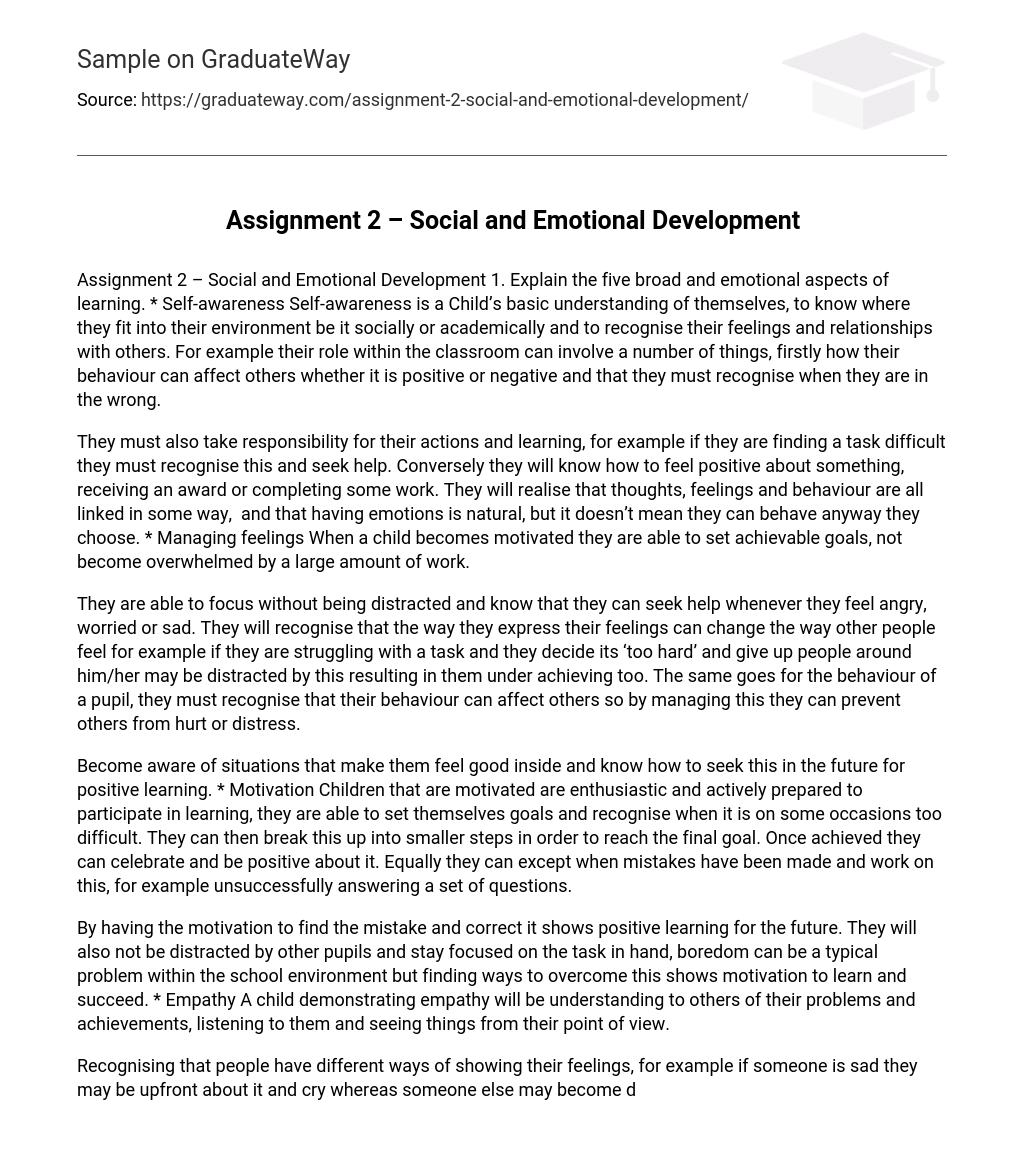Explain the five broad and emotional aspects of learning.
- Self-awareness Self-awareness is a Child’s basic understanding of themselves, to know where they fit into their environment be it socially or academically and to recognise their feelings and relationships with others. For example their role within the classroom can involve a number of things, firstly how their behaviour can affect others whether it is positive or negative and that they must recognise when they are in the wrong. They must also take responsibility for their actions and learning, for example if they are finding a task difficult they must recognise this and seek help. Conversely they will know how to feel positive about something, receiving an award or completing some work. They will realise that thoughts, feelings and behaviour are all linked in some way, and that having emotions is natural, but it doesn’t mean they can behave anyway they choose.
- Managing feelings When a child becomes motivated they are able to set achievable goals, not become overwhelmed by a large amount of work. They are able to focus without being distracted and know that they can seek help whenever they feel angry, worried or sad. They will recognise that the way they express their feelings can change the way other people feel for example if they are struggling with a task and they decide its ‘too hard’ and give up people around him/her may be distracted by this resulting in them under achieving too. The same goes for the behaviour of a pupil, they must recognise that their behaviour can affect others so by managing this they can prevent others from hurt or distress. Become aware of situations that make them feel good inside and know how to seek this in the future for positive learning.
- Motivation Children that are motivated are enthusiastic and actively prepared to participate in learning, they are able to set themselves goals and recognise when it is on some occasions too difficult. They can then break this up into smaller steps in order to reach the final goal. Once achieved they can celebrate and be positive about it. Equally they can except when mistakes have been made and work on this, for example unsuccessfully answering a set of questions. By having the motivation to find the mistake and correct it shows positive learning for the future. They will also not be distracted by other pupils and stay focused on the task in hand, boredom can be a typical problem within the school environment but finding ways to overcome this shows motivation to learn and succeed.
- Empathy A child demonstrating empathy will be understanding to others of their problems and achievements, listening to them and seeing things from their point of view. Recognising that people have different ways of showing their feelings, for example if someone is sad they may be upfront about it and cry whereas someone else may become disconnected from the group and unwilling to get involved. They will be supportive to others where necessary and understand that their actions can affect other people so choose the way they are going to behave appropriately.
- Social skills Social skills allow pupils to engage with others and communicate in group discussions, being able to listen to others and debate and resolves differences amicably. They know how to be friendly but also when to break friendships where it is necessary without causing upset. They will understand what helps the group to work together and be assertive in making this happen.





